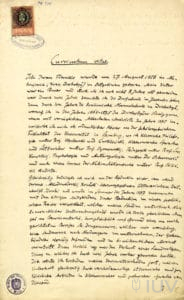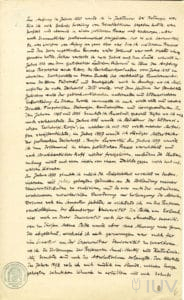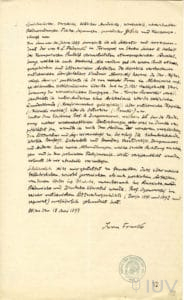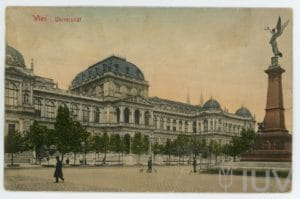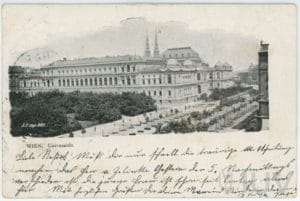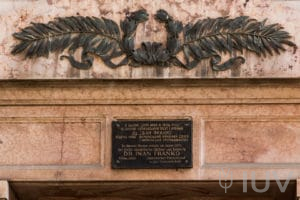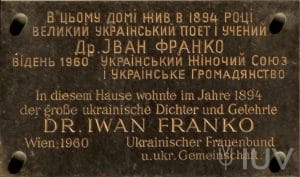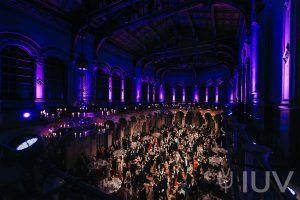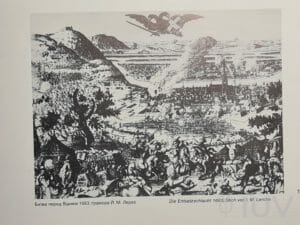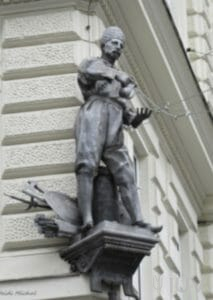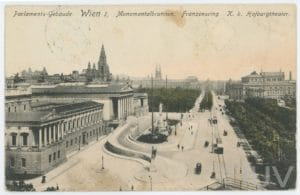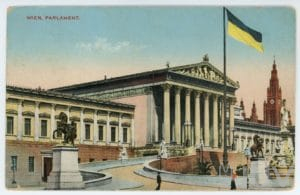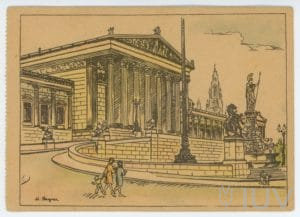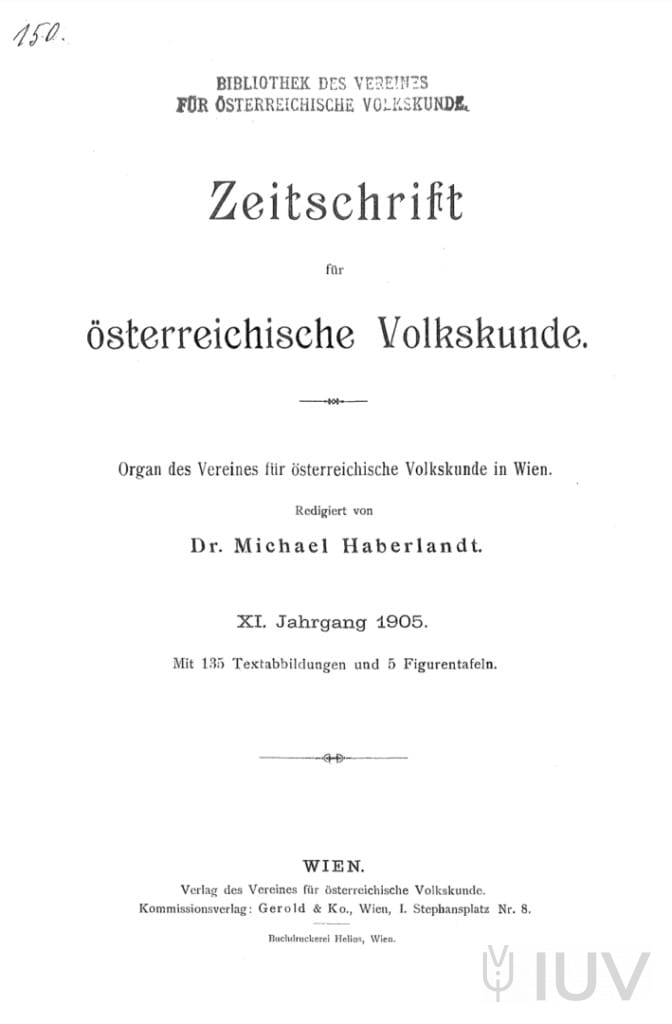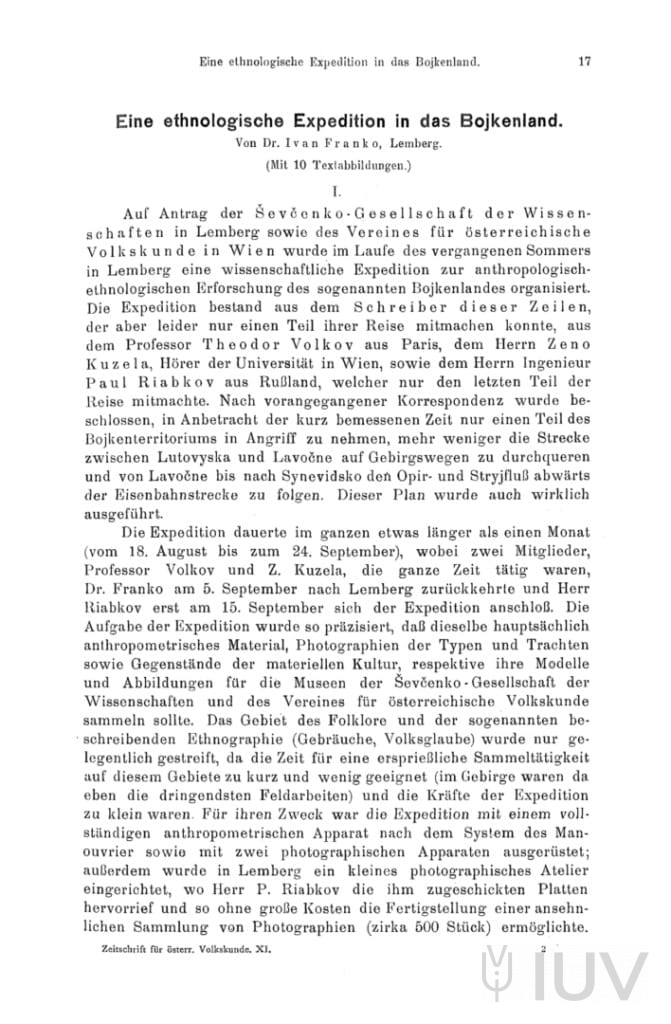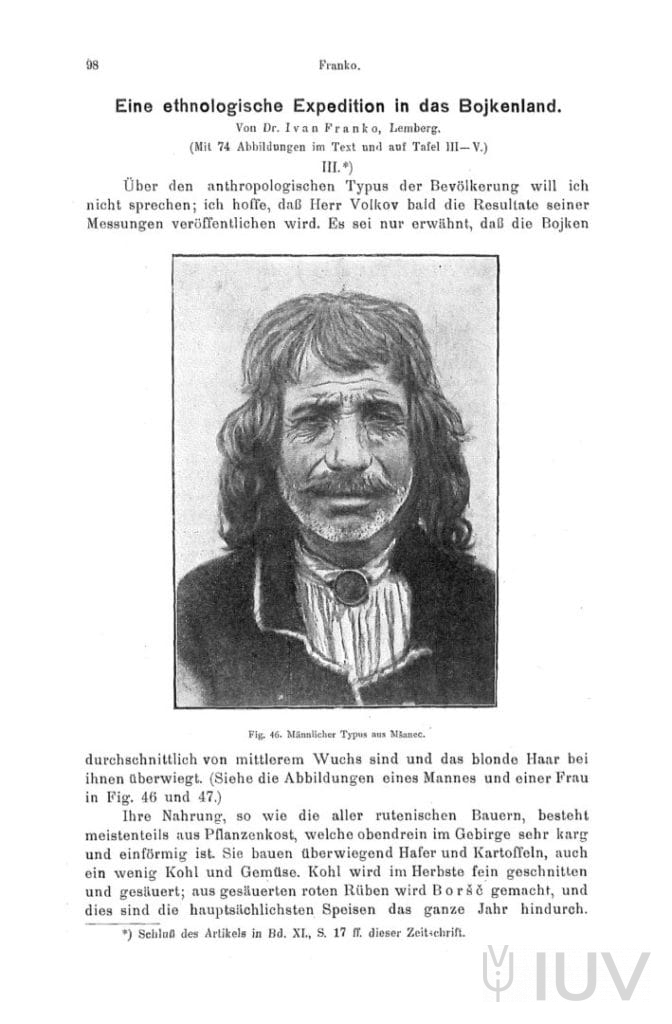Vienna – the main city of Franko’s life (along with Drohobych, where his character and worldview were forged in his youth, and Lviv, which became his home for the next 40 years, until his death).
And this is not an exaggeration! The point is not only that the writer visited Vienna more than a dozen times (for example, from 1890 to 1897 he came here almost every year, often several times a year). He spent here almost a year of his life in total. The fact is that Franko’s fate was decided in Vienna. It was the city of his triumphs and failures, hopes and disappointments. Here he earned a doctorate in philosophy from the University of Vienna, one of the oldest and most renowned universities in Europe. Here he established political, academic and personal contacts with the leading intellectuals of his time, and spoke with them on an equal footing, whether at a coffee shop table, from an academic chair, or at a political rally. Here he hoped for a positive resolution of the issue of his associate professorship at Lviv University, but in vain. Here he wrote his works and sought to see them performed on the stage of the capital’s theaters (though not always successfully). Here he published resonant articles in leading magazines that were read and discussed throughout the German-speaking world (and beyond!). However, he sometimes did not have a penny to live another day here.
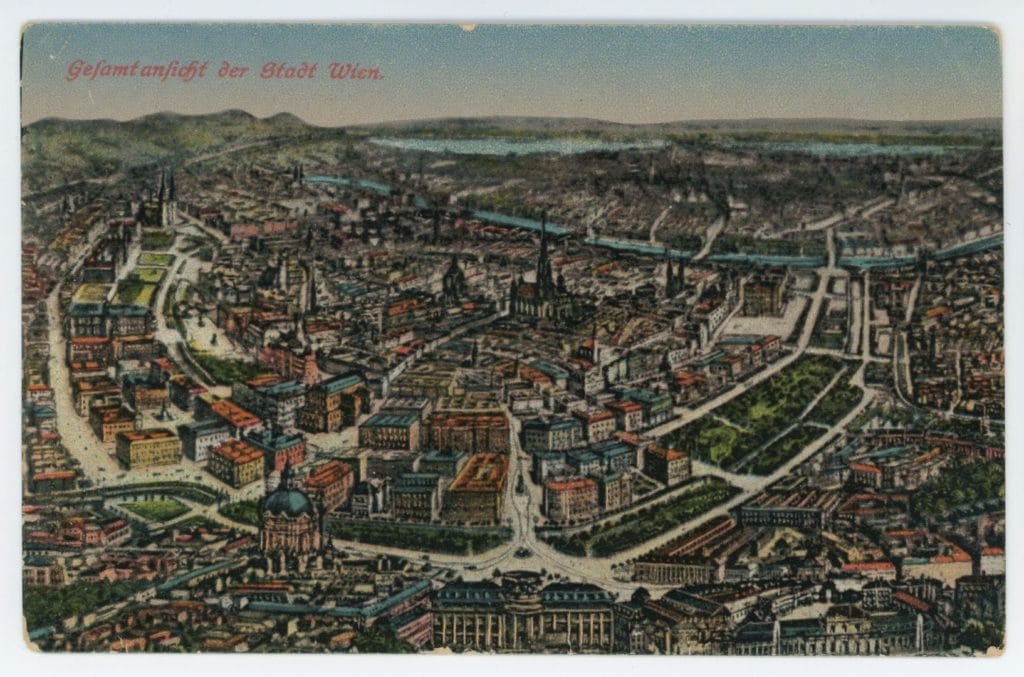
Panorama of Vienna. Postcard from 1916.
Ivan Franko in Vienna – Writing His Doctoral Dissertation and Ascetic Work
For Franko, the Danube capital was not only the heart of the Habsburg monarchy and the residence of the emperor, the seat of government institutions, a city of luxurious parks and pompous buildings on the Ring designed to symbolize the greatness of the empire. Above all, it was a scientific, educational, and cultural center: it was a major university city, a city of theaters, museums, concert and exhibition halls, rich professional libraries, bookstores, coffee shops, and editorial offices of leading journals. It was a city of reputable scholars, famous artists and sharp-tongued publicists, a city where intellectual life was booming, setting the tone and shaping the ideological climate not only in Austria-Hungary with all its provinces, but also in Europe.
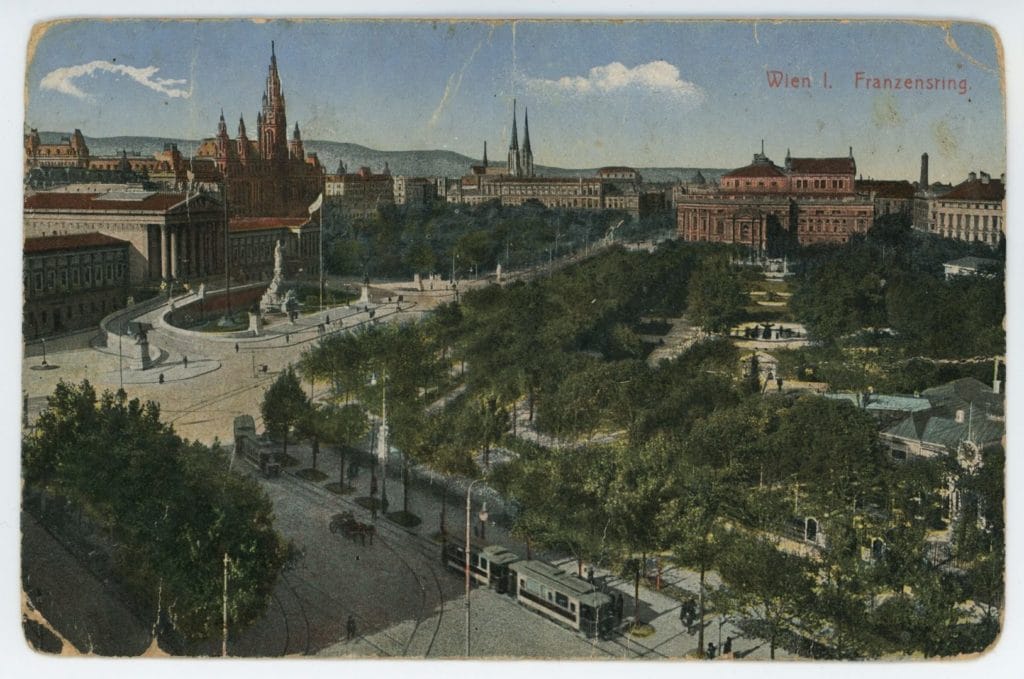
Vienna City Center. Franzensring. Postcard
It is believed that Franko first came to the capital of the Habsburg Empire in 1890 to meet with Mykhailo Drahomanov, his “spiritual father,” unofficial academic advisor, and political leader (at least for a while).
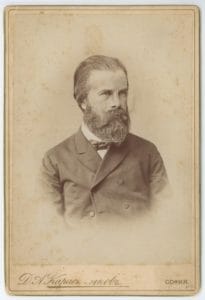
Mykhailo Drahomanov. Sofia (Bulgaria). Photo from Ivan Franko’s Album cover
More than once, the writer visited Vienna while traveling to the Czech Republic, Italy, or Germany. For example, on his way back from a congress of Slavic youth in Prague in May 1891, Franko met with members of the “Січ” (eng. “Sich”), a cultural and educational society of Ukrainian students in Vienna. On November 27, 1889, “Sich” members elected him as honorary member “for his great merits for our society and for the Russian-Ukrainian literature”.
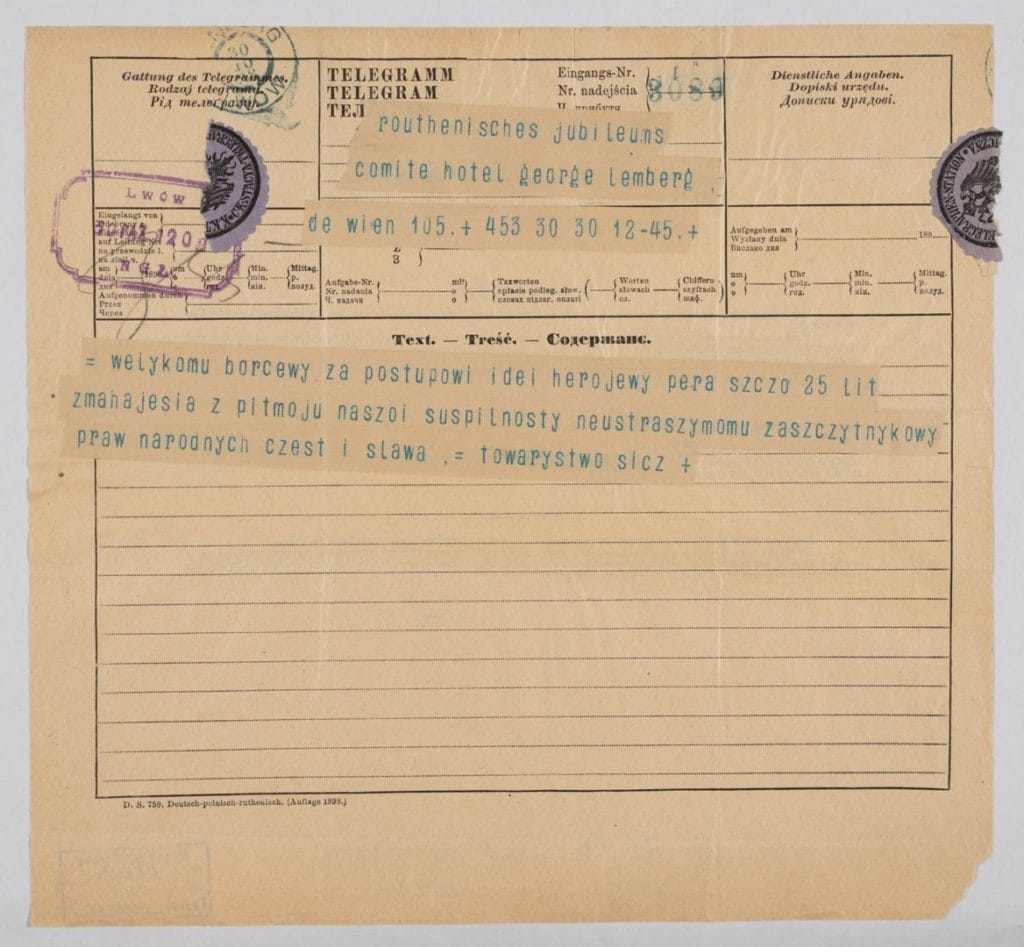
Telegram from the “Sich” Society, Sent to Ivan Franko from Vienna on the Occasion of the 25th Anniversary of His Creative Work. try another
The most mysterious of these journeys was a 12-day trip across Europe in September 1892. In a letter to Drahomanov dated September 22-23, 1892, Franko wrote: “For the last 12 days I have also been on the road, in Krakow, Vienna, Nuremberg, and Frankfurt. . . ” We still do not know for sure why he went there, although it can be assumed that as the leader of the Russian-Ukrainian Radical Party he needed to establish closer cooperation with European political circles of a democratic orientation. It is the secret political purpose that may explain why the writer did not reveal more about this trip.
But it was not politics that really brought Franko to Vienna, but science.
Franko’s longest stay in Vienna was when he was working on his doctoral dissertation in 1892-1893. Given his political past (arrests, imprisonment, participation in the propaganda of radical ideas), the writer could not complete his studies in Lviv. There were too many obstacles from ill-wishers. So, after unsuccessful attempts to submit his dissertation at the university that now bears his name (in particular, on Ivan Vyshensky and the political poetry of Taras Shevchenko), Franko decided to go to the capital. The reason for doing so was also his wife who believed that a doctorate would allow her husband to take a secure social position, sufficient enough to support the family with dignity.
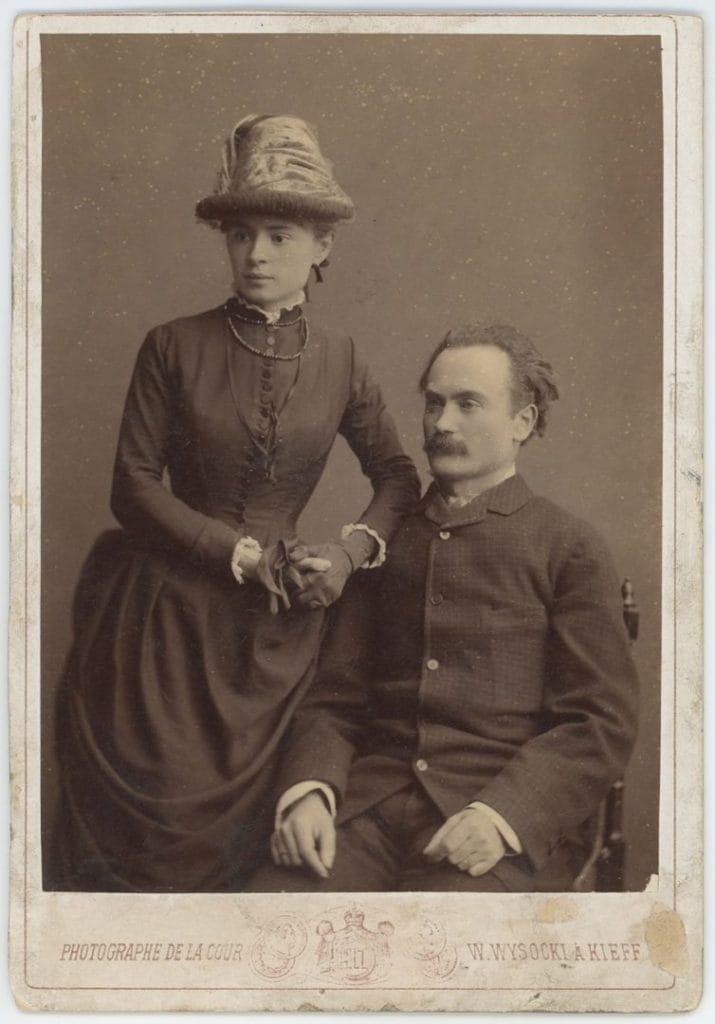
Ivan Franko and Olga from the Khoruzhynsky Family on Their Wedding Day. Kyiv, 1886
I was told to take the doctoral exam not in Lviv but in Vienna, near Jagich, who is not Ogonowski and does not consider me his enemy. So I started to fix my dissertation in German and I think I will finish it by the end of June, and at the most by half of July in Latin, and then I would bring it to Jagich and talk to him about the oral examination.
Ivan Franko. Letter to Mykhailo Drahomanov, May 30, 1890.
- Ivan Franko’s CV from the Archive of the University of Vienna
On October 7, 1892, a young 36-year-old man arrived at Vienna’s Nordbahnhof (North Station) from Lviv, already the father of four children (the youngest, Handza, was only 2 months old!). He was determined and confident in his scientific abilities, although he had some doubts that scientific regalia alone would solve all his problems in one fell swoop.
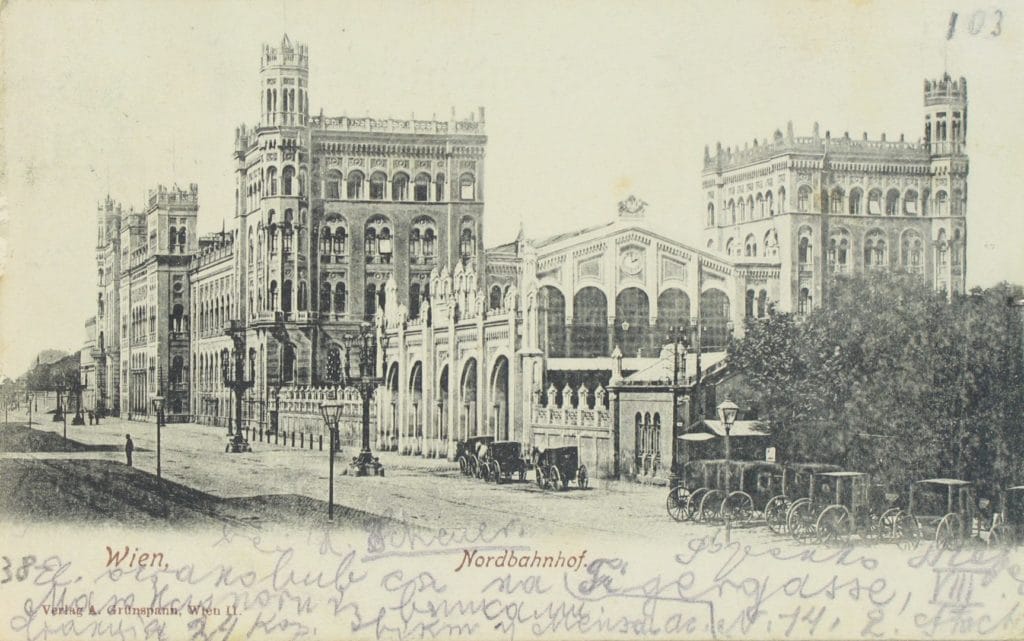
Vienna’s North Station, where Franco used to arrive by train from Lviv.
In a letter to his wife from Vienna dated October 11, 1892, Franko wrote:
I am not enrolling in the university for the doctorate itself, but also to really use it in science and to get acquainted with scholars whose acquaintance may be more useful to me than the doctorate itself.
Thus, Ivan Franko became a doctoral student at the University of Vienna and a student of the slavic seminar lead by Professor Watroslav Jagic.
- University of Vienna. Postcards
This time, he chose an interesting and politically neutral topic for his dissertation: “Barlaam and Joasaph, the Old Christian Spiritual Novel and its Literary History”. Such sources of this monument of medieval literature as, for example, the parable of the unicorn and Buddhist legends about Prince Siddartha Gautama were much “safer” than Shevchenko’s resentful satires and polemical invectives from I. Vyshensky…
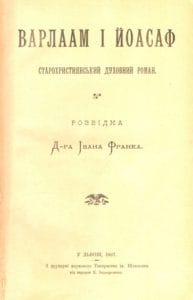
Cover of Ivan Franko’s Work “Barlaam and Joasaph: An Early Christian Spiritual Novel.” Lviv, 1897
Vatroslav Jagić
Vatroslav Jagić (1838-1923) – a Croatian Slavic scholar, linguist, paleographer and archaeographer, literature critic, and historian. Doctor of Philology (1870), Professor (1863). He was a member of the South Slavic Academy of Sciences and Arts, Russian, Berlin, Vienna, Krakow Academies of Sciences, Matica Serbica, and the Royal Society of Linguists of the Czech Republic.
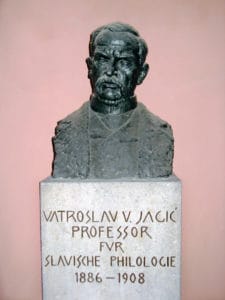
A bust of Vatroslav Jagić in the gallery of the Vienna University courtyard.
He was the founder and editor-in-chief of the first international Slavic journal “Archiv für slavische Philologie” (eng. “Archive for slavic Philology”) (1875-1929) and the Slavic Seminar at the University of Vienna (the predecessor of the present Institute of Slavic Studies).
He is the author of about 700 studies in various fields of Slavic studies, including a number of works on Ukrainian studies. Ivan Franko’s supervisor at the University of Vienna. Their mutual correspondence has been preserved.
«I am sending you greetings from Vienna. My address is Vienna, 1, Wipplingerstrasse 26, 1 Stair, 4 Floor», – I. Franko informed his family and friends.
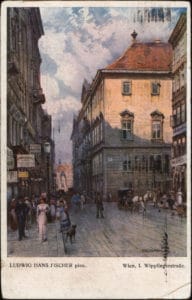
Vienna, Wipplingerstrasse. Postcard. Watercolor by Ludwig Hans Fischer.
It was at this address that he rented an apartment with his friend from Lviv, the future famous literature critic and academician of the Academy of Sciences of Ukraine, Vasyl Shchurat. He stayed in this house many times later, during his subsequent visits to Vienna. The place was 10-minute leisurely walk from the university and exactly the same distance from St. Stephen’s Cathedral (Vienna’s cathedral – the symbol of the city and the national shrine of the whole of Austria!). A commemorative plaque now stands above the entrance gate to the entrance.
- A commemorative plaque on the house where Franko lived (26 Wipplingerstrasse).
«…With the intention of devoting ourselves to Slavic studies, Ivan Franko and I went to Vienna. Franko’s studies (fifteen years before this break) were already ending and I was just starting them. We shared a room on Wiplinger Straße, went out to dinner together, and visited the Central Cafe on Herrengasse every day. There, over black coffee, we would read a dozen fresh press articles, if no one else interrupted them. And the third one, as usual, was one of Franko’s acquaintances, rarely one of mine, especially those with whom a longer conversation could be interesting for Franko.»
Vasyl Shchurat. «Back then, it was just a dream…»
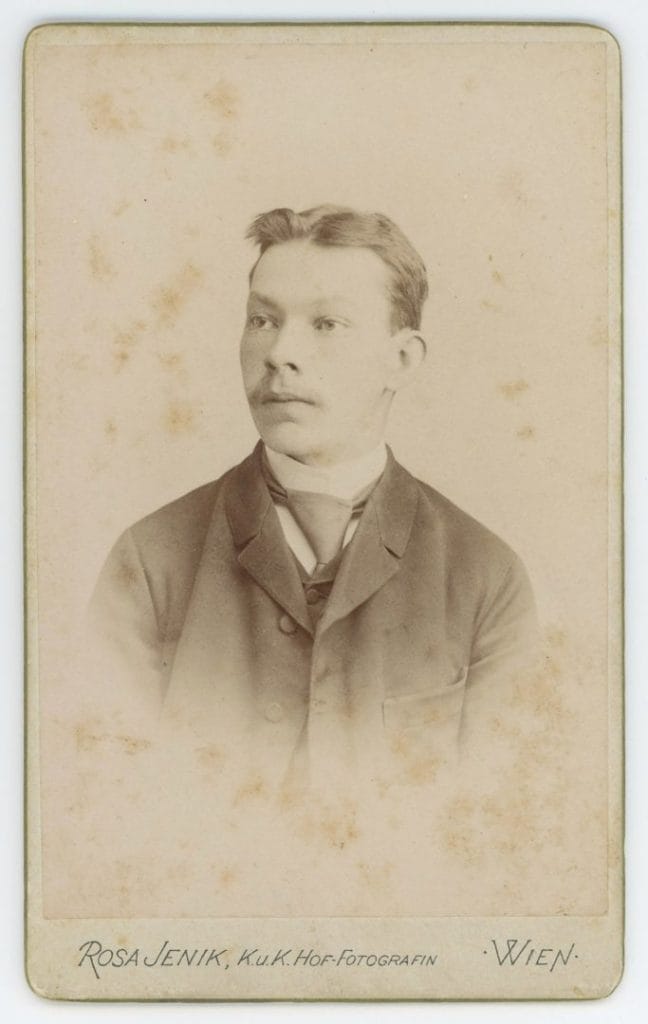
Vasyl Shchurat. Photo. Vienna
Related events
During his longest stay in Vienna (almost 9 months, with two short breaks for holidays – Christmas and Easter) Ivan Franko seems to have spent more time with books than with people.
«Ice is floating on the Danube, but I haven’t had time to go see it yet.» – he complained in a letter to his wife dated February 20, 1893.
He devoted all his energy to writing his doctoral dissertation. Of course, he spent most of my time working in libraries: the university library and the imperial library (now the Austrian National Library, located in the Hofburg Palace).
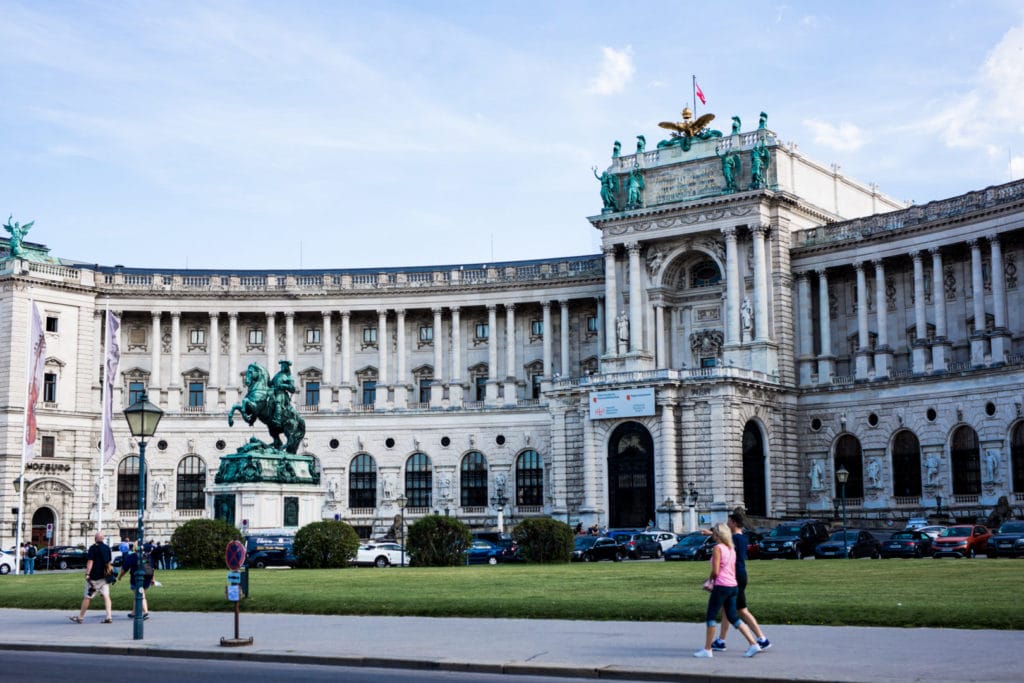
Austrian National Library. Photo by Anastasiia Khlibnyk, 2021
Sometimes he met with fellow Slavists, Austrian politicians, and fellow Ukrainians.
Yesterday we had a small Slavicists’ market, with Jagić, Jirecek, young Viennese Slavs, many Croats who came for Philologentag (eng. Philology Day), Prague’s Kral and Polivka and at the end Krumbacher, the famous Byzantine scholar, came. There were a lot of speeches and they made me speak as an example of the South Russian people. There was also Shcherbatsky, to whom Jagic apoke in honor (in Russian)…
Ivan Franko. Letter to Mykhailo Drahomanov, May 28, 1893.
But occasionally there was a wave of rest. Then he would go to the coffee shop, occasionally to the Prater (a large recreation park with numerous restaurants and attractions), and more often he would just take a walk in the center of Vienna. At that time, he felt especially keenly how much he missed his wife and children…
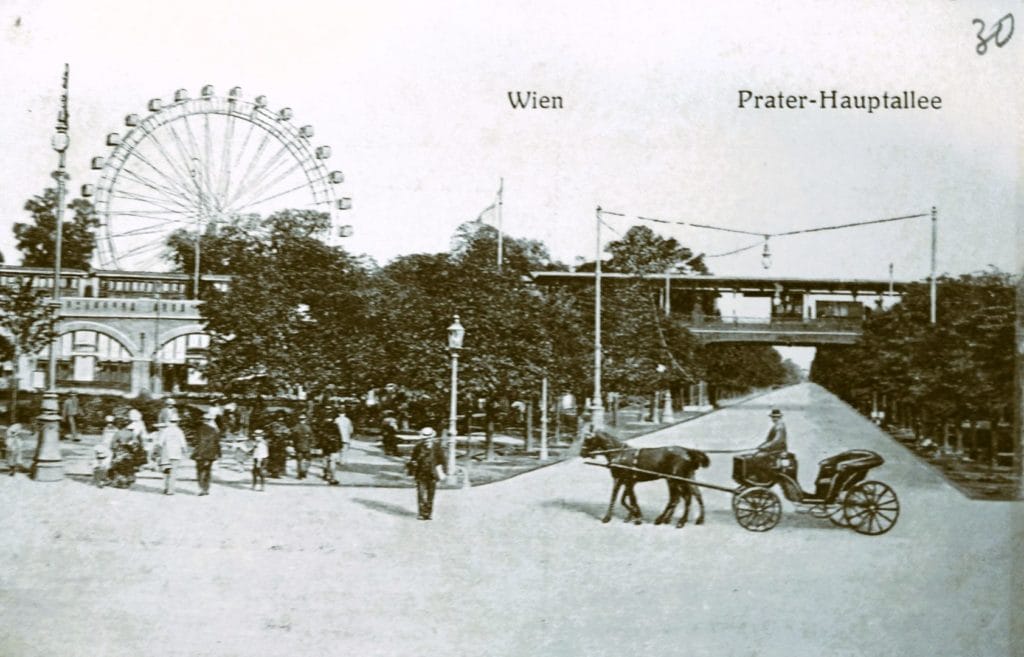
Vienna Prater. Main Avenue. Postcard
Franko's Vibrant Social Life in Vienna: Meetings and Incredible Acquaintances
Here, after wonderful days, there are very bad ones. For a couple of days it was as cold as if it was winter. In the end, I don’t go out much, I work on my dissertation, which is going rather slowly. Although I still hope to finish it by the second week and submit it right away. Then I will start studying for the oral exam. Last Sunday I was in Prater for the first time and looked at the folk amusements, swings, carousels, etc. I wish our boys could stay here and swing! Yesterday in the evening I walked through the garden in front of the Burg – the Turkish bosom is in full bloom so much. The whole snags are covered with flowers right down to the ground. And today it’s raining again.
Ivan Franko. Letter to his wife Olga, May 12, 1893.
During one of these walks, Franco accidentally met… his friend and future godfather, the poet Mykola Voronyi!
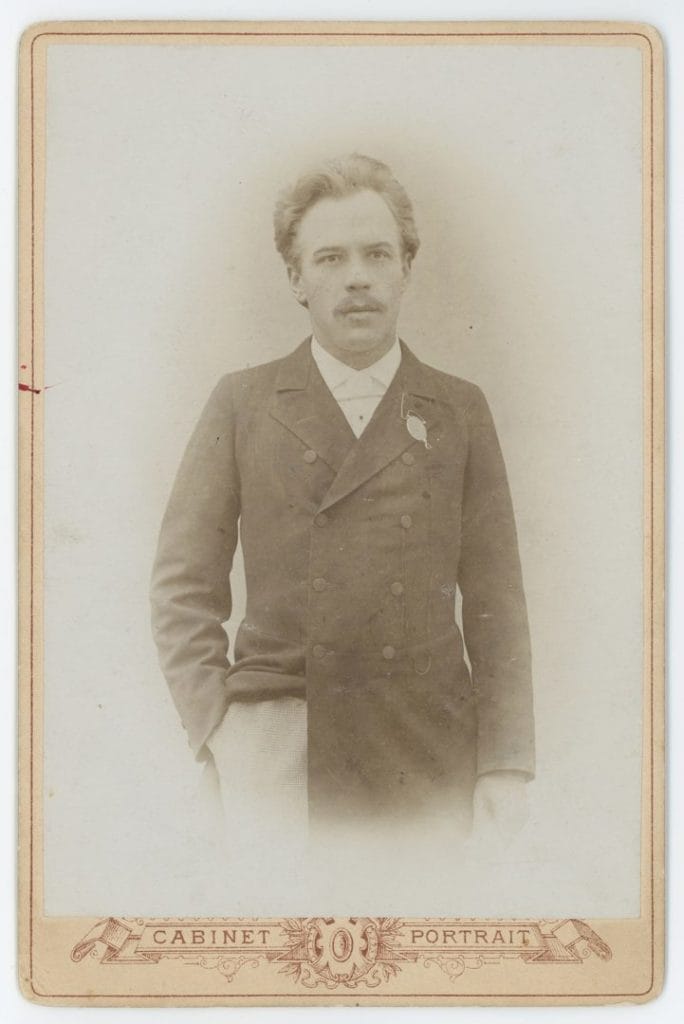
Mykola Voronyi. Photo
Memoir of Mykola Voronyi:
One day I was walking in reverie along the Floriangasse and reciting Kulish’s stanzas: “I walk around the garden, big, big; i would open my heart, but to no one, and to no one. . . ” Suddenly I heard someone shouting, “Voronyi!” I looked around and saw a man walking clumsily across the street, wearing the same clothes as in Lviv. . . Franko! He held the same famous hat in his hand, and in it is a paper “pound” with cherries, which he thew into his mouth with his free hand and spit out the pits through his lip. A couple of fresh issues of the magazine “Житє і слово” (eng. “Life and Word”) stuck out of his pocket. He greeted me with cherries and a fresh magazine. We went up to his apartment. Upon entering a small, dark apartment (probably on the third floor) somewhere near Stephansplatz, I was suddenly surprised when Franco, introducing me to the owner, a heavy and rough German with the typical physiognomy of a Viennese burgher – Viktor Adler.
Here, in Adler’s house, I got to know the real Franko for the first time, with whom I had already fallen in love forever… I was ignited by that holy fire that just kept beating out of Franko’s person – his sparkling eyes and his ardent, sonorous speech. He was a real tribune and a poet. At the same time – young, intelligent and passionate.
Mykola Voronyi. «First meetings with Ivan Franko»
Victor Adler
Victor Adler (1852-1918) was an Austrian politician, one of the organizers and leaders of the Austrian Social Democratic Party, supporter of Austromarxism. A physician by profession. He began his political activity as a radical, a supporter of the labor movement. His friendship and correspondence with Engels continued, especially in 1889-1895. He is revered as one of the founding fathers of the modern Austrian Republic. He was an acquaintance and political ally of Ivan Franko, whom he considered “one of the most important writers in Austria”. During his stay in Vienna, Franko often met with Adler and visited him at home.
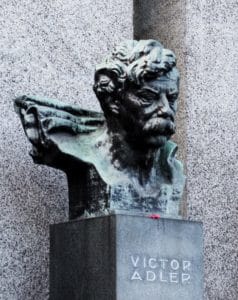
Victor Adler. Bust from the Monument to the Founders of the Austrian Republic. Vienna
In Vienna, Ivan Franko became acquainted with many prominent figures of the era: not only Austrian and German (Viktor Adler, Engelbert Pernerstorfer, Hermann Bahr, Karl Krumbacher, Friedrich Solomon Krauss and others), but also Slavic (Tomas Masaryk, Adolf Cerny, Josef Svatopluk Mahar, Jiri Polivka, Konstantin Jirecek, Matthias Murka, Fedir Scherbatsky and many others) since Vienna was not just the capital of the Danube Empire at that time, but the cultural capital of the whole of Europe. It was a city of intellectual meetings, a place of international cooperation, a place of intercultural dialogue.
My life in Vienna has made me personally acquainted with various people whose friendship is an honor for me. The name between them is prof. Jagich, Dr. Adler, publisher of the Arbeiterzeitung, prof. Singer and Dr. Kanner, the publishers of the Zeit, Ambassador Pernerstorfer and others.
Ivan Franko. From an autobiography written for the “Herders konversations Lexicon” (1909)
- Herders Konversations-Lexikon”: Encyclopedia Edition, Cover, and Letter from the Editorial Office
My first meeting with Ivan Yakovlevich took place in Vienna many years ago, back in the days of the Austro-Hungarian monarchy. I came at that time for classes in my specialty at the library of the University of Vienna. During my leisure hours, as young scientist at the time, I liked to visit the Central Cafe, which was popular among Viennese students and young scientists. During one of these visits to the cafe a Slavic professor I knew introduced me to Franko. He was a man of short stature, not overweight and reddish. He was characterized by great modesty
Fedir Shcherbatsky. «Зустрічі» (eng. “Meetings”)
In the end, the long and hard scientific work was crowned with success. At the end of June, Franko brilliantly (“with honors”) passes the so-called rigorous exams in front of a distinguished group of professors (doctoral exams in Slavic studies, Latin on June 20 and philosophy on June 28).
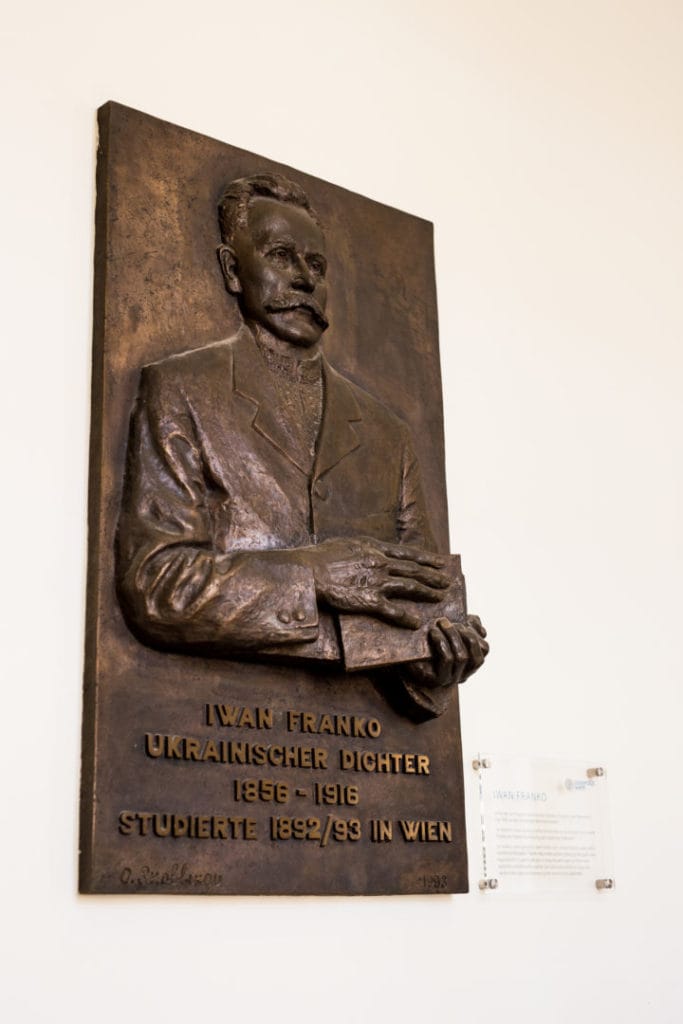
A memorial plaque to Ivan Franko at the Institute of Germanic Studies at the University of Vienna
Related monuments
The newspaper “Kurjer Lwowski”, whose correspondent Franko was, proudly reported the important news in the Chronicle section of July 2, 1893:
«On 1st of July this year, Ivan Franko, our dear friend and colleague, a true Ukrainian and a famous researcher of Slavic affairs received his doctorate in philosophy at the University of Vienna…»
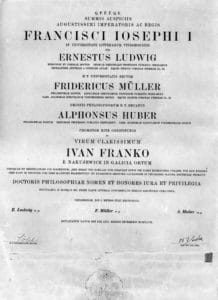
Ivan Franko’s Diploma – Doctor of Philosophy, University of Vienna
However, on the same day, immediately after defending his dissertation, Franko took the next train home to Lviv. First of all (and most importantly!) his wife and four children were waiting for him there. And secondly, he simply did not have the money to stay in Vienna any longer…
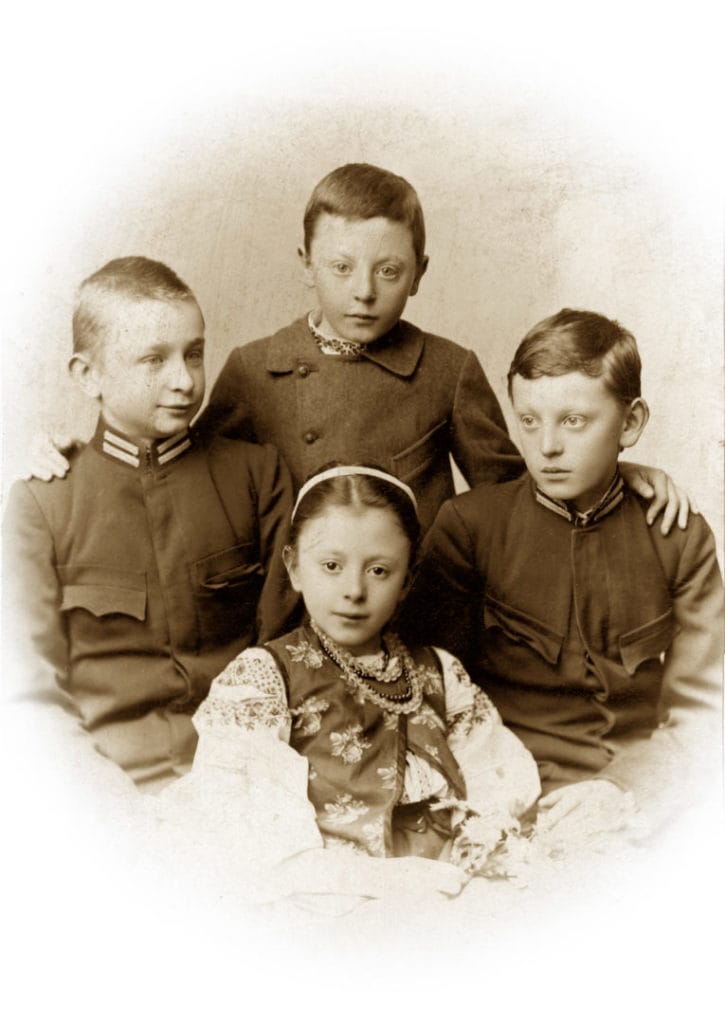
Ivan Franko’s Children: Andriy, Taras, Petro, and Anna
Franko's Political Career and Other Facets of His Personality: Ethnographer, Journalist, Researcher
However, as Franco had predicted, the doctorate alone did not open the gates of his career-neither scientific nor political. Despite a brilliant habilitation (trial) lecture (dedicated to Shevchenko’s “Наймичці” (eng. “Hireling”)), his attempt to take up the position of associate professor at Lviv University after the death of Professor Omelian Ogonowski was unsuccessful… The authorities wouldn’t allow him to teach, fearing his “harmful” influence on young people!
In the spring of 1895, Franko spent 12 days in Vienna on the matter of his habilitation – the right to teach at Lviv University, which unfortunately he never received because of his uncomfortable “political past”. Even a personal audience with the Minister of Education and Religions of Austria-Hungary, Edward Rittner (incidentally, a graduate and honorary doctor of Lviv University), did not help…
So when the door closed on Franko being the scientist, Franko decided to step into political field. He ran three times for the Austrian Parliament (Reichsrat), the State Council in Vienna, from the Russian-Ukrainian Radical Party (in 1895, 1897, and 1898). However, he never managed to become an elected “ambassador” (deputy) despite his enormous authority among the intelligence circle of Galicia. Nevertheless, he did not hide his active position. And yet his life paths often led him to the Austrian capital, the epicenter of not only educational and scientific, but also cultural, artistic and socio-political life.
- Austrian Parliament in Vienna
In December 1896, Franko delivered two speeches on the situation of the Galician peasantry in the Vienna Ronacher (Ronacher, Seilerstätte 9, 1010, Vienna). And a year later, at the Vienna Fabian Society he read a report on emigration from Galicia. He repeatedly participated in Viennese meetings and rallies, often met with leading social and political figures of that time who were also in Vienna, often – according to Viennese tradition – for coffee.
Read Also About the Establishment of the Diplomatic Mission of the Ukrainian People’s Republic in Vienna.
In December 1896, Franko delivered two speeches on the situation of the Galician peasantry in the Vienna Ronacher (Ronacher, Seilerstätte 9, 1010, Vienna). And a year later, at the Vienna Fabian Society he read a report on emigration from Galicia. He repeatedly participated in Viennese meetings and rallies, often met with leading social and political figures of that time who were also in Vienna, often – according to Viennese tradition – for coffee.
After all, if they say that Paris is worth a mass, then Vienna is definitely worth a coffee!
Related events
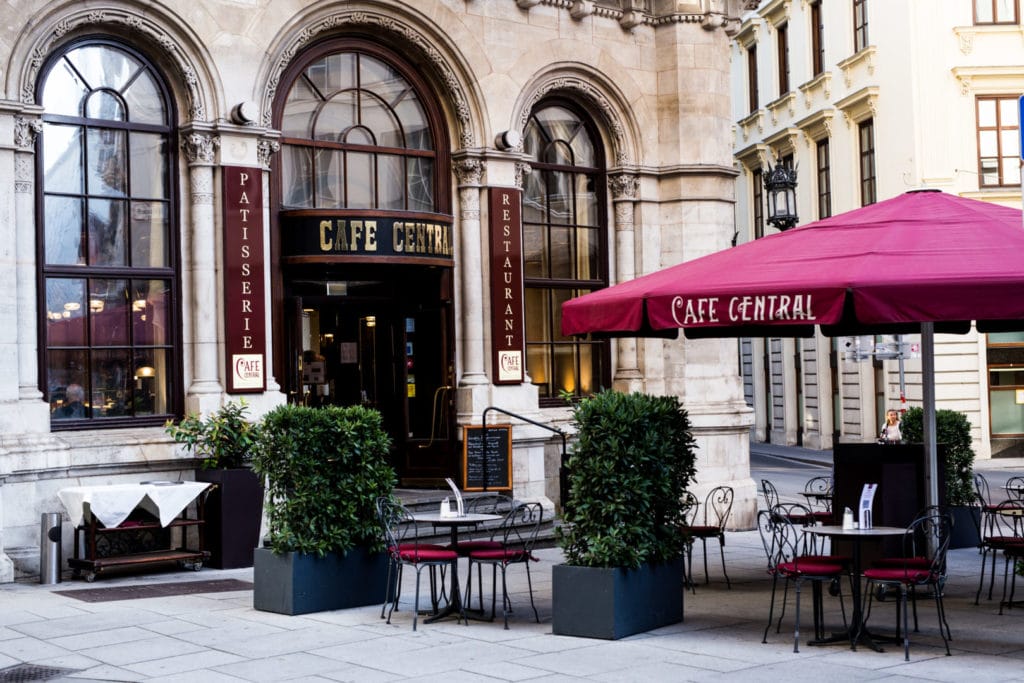
Café Central. Photo by Anastasiia Khlibnyk, 2021
The Viennese coffeehouse culture is a vivid phenomenon of the European civilization. Here, people not only enjoyed hot drinks and desserts, but also talked about private and work-related topics. The high standard of this culture in the Habsburg Empire was, of course, set primarily by the capital’s coffee houses, such as the famous Café Central on Herrengasse in the center of the Austrian capital, where Franco enjoyed a cup of aromatic mélange (coffee and milk) with a croissant or a piece of Sacher cake while browsing the latest press, discussing cultural and political events with friends and acquaintances, and pondering his doctoral dissertation.
No wonder that Frank’s legendary maternal ancestor, Yuriy Kulchytsky, a hero of the 1683 defense of Vienna against the Turkish invasion and founder of one of the first Viennese coffee houses, Under the Blue Bottle, is considered a Ukrainian who taught Europe how to drink coffee. He is credited with inventing the recipe for the famous Viennese coffee! So his distant descendant did not shy away from this tradition either.
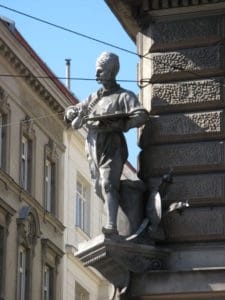
Monument to Yuriy Kulchytsky in Vienna (at the corner of Favoritenstraße 64 and Kolschitzkygasse
The next day I learned that Franko would be at the Central Coffee House on Panska Street in the evening, and I went there with the late Roman Sembratovych, who introduced me to him and Mohylnytsky. Mohylnycky was always telling interesting stories about various electoral adventures, was cheerful, threw jokes like tassels of flowers, and at the end he told how he had met Franko at the Würstel-Prater on the same day and how Franko had ridden carousels and danced with a pretty Viennese woman in the Svoboda restaurant and twisted his leg while dancing. Franko did not contradict Mohylnytsky and only smiled. He also said that he and Adler had been to lunch with Professor Singer, who praised Adler’s wisdom and scholarship and was happy to have opened the way for him to get into Viennese newspapers and magazines.
Marko Cheremshyna. «A fragment of my memories of Ivan Franko»
Related monuments
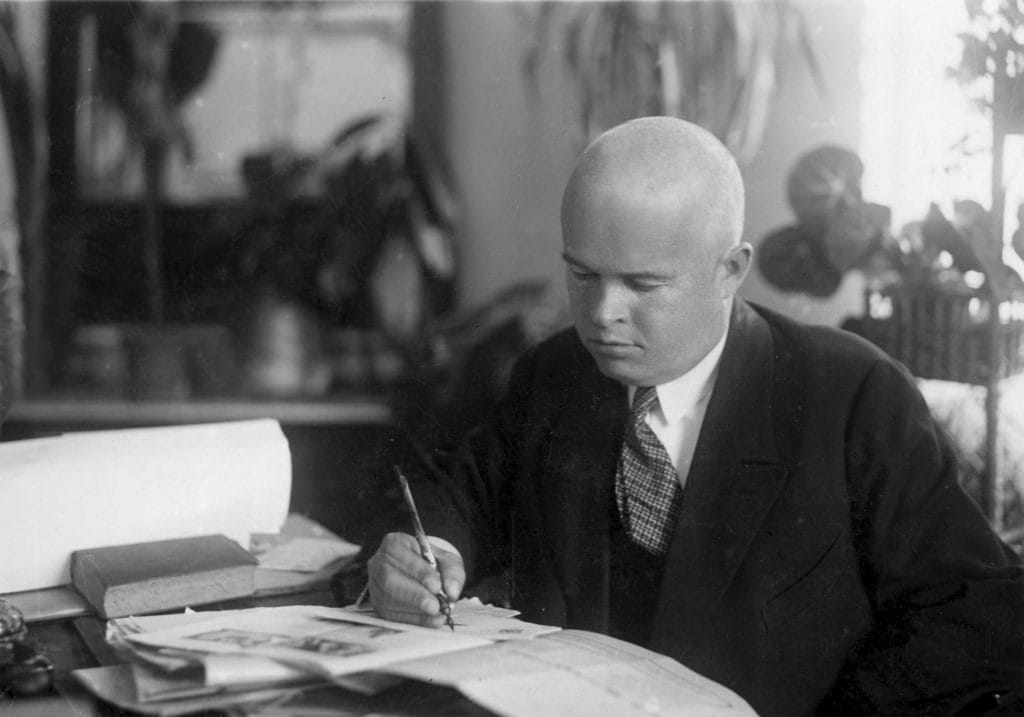
Marko Cheremshyna (Ivan Semaniuk). Photo
Even at home, in Lviv, and on Boyko’s trails or Hutsul plai, Franko did not interrupt his intellectual ties with Vienna. As a journalist and publicist, he actively collaborated with numerous Austrian periodicals of socio-political and scientific orientation, including the Vienna-based magazines “Die Zeit”, “Die Arbeiter-Zeitung”, “Wiener Blatt”, “Die Wage”, “Neue Revue”, “Neue Freie Presse”, “Österreichische Rundschau”, ”Zeitschrift für österreichische Volkskunde”, “Ruthenische Revue”, and others. It should be noted that the royalties from some of these publications far exceeded Franko’s earnings in the Galician (and especially Ukrainian) press.
As an ethnographer and folklorist Ivan Franko participated in the organization of scientific expeditions and supplied scientific materials and valuable exhibits to the Viennese museums. First of all, the Austrian Museum of Folk Culture in Vienna (Österreichisches Museum für Volkskunde, Laudongasse 15-19, 1080 Wien). Franko maintained close contacts with its leader and founder, Michael Haberlandt (1860-1940), a professor of ethnography at the University of Vienna, folklorist, ethnologist, and Indologist, and handed him the ethnographic collection that is now kept in the museum.
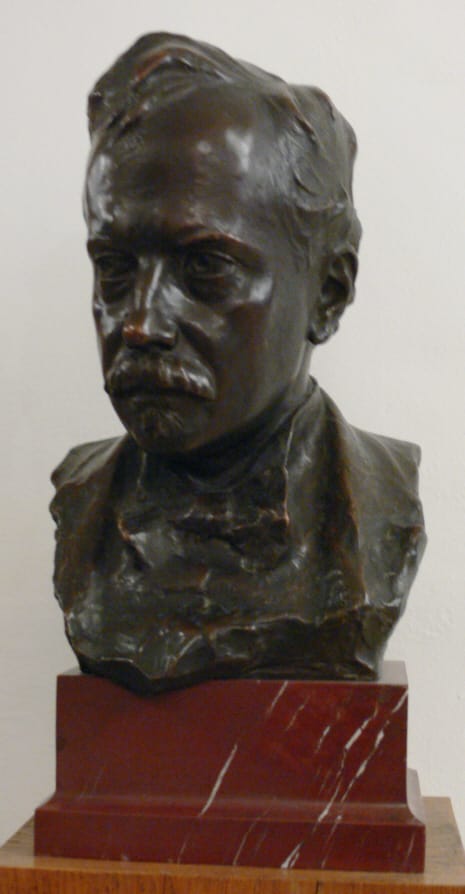
Michael Haberlandt. Bust from the Austrian Museum of Ethnology (Wien, Österreichisches Museum für Volkskunde)
When in 1904 the Shevchenko Scientific Society in Lviv, together with the Society for Austrian Ethnography in Vienna, initiated a scientific expedition to conduct an anthropological and ethnographic study of the Boikivshchyna, Franko was one of its main participants and co-organizers. Based on the results of these studies, he published a lengthy summary study “Ethnographic Expedition to the Boikivshchyna” in German in the professional journal “Zeitschrift für österreichische Volkskunde” (Vienna, 1905) with numerous illustrations and insightful observations.
- Ivan Franko’s Work “Ethnographic Expedition to the Boyko Region.” Title Page of the Journal “Österreichische Zeitschrift für Volkskunde” Featuring the First Publication of the Study and Selected Pages.
So the capital on the Danube did not really let the writer go… Even on his way to Lipik, Croatia, for treatment in March 1908, the already ill Franco planned to stop by Vienna on his way to see a performance by the world-famous dancer Isadora Duncan, who was just then touring the Austrian capital…
Once he bought an expensive dress for his wife as a gift in Vienna (according to the memoirs of Katria Grynevycheva). However, he complained that for some reason she never wore it…
In the early 20s of the XX century, the writer’s son, Petro Franko, concentrated his activities in Vienna for some time, where he even founded the publishing house “Франко. Син і спілка” (eng. “Franko. The Son and the Union”).
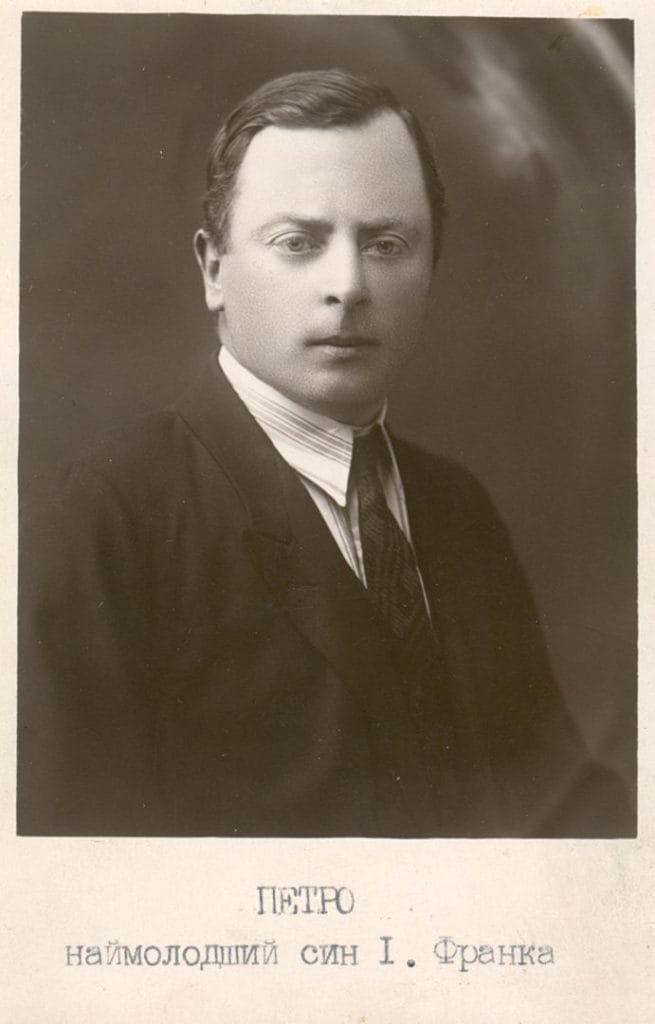
Petro Franko, the Youngest Son of Ivan Franko and Founder of the Publishing House “Franko. Son and Company” in Vienna. Photo from the 1920s
Petro Franko continued the publication of the series “Plast Library” (the first issue of which, “Plast Games and Amusements,” was published in 1913 in Lviv) and launched a new book series, “Small Library.” Through the publishing house “Franko. Son and Company,” several popular science booklets were issued. Among them were Petro Franko’s own works, published in 1921: “How to Establish Plast Troops?” (“Plast Library,” No. 2), “Overview of Ukraine’s Territory (after S. Rudnytsky)” (“Plast Library,” No. 3), “Rejuvenation (after Dr. E. Steinach)” (“Small Library,” No. 1), “The Theory of Relativity (after A. Einstein)” (“Small Library,” No. 2), and “What Everyone Should Know About Metabolism” (“Small Library,” No. 3).
It is noteworthy that in the 1920s, Vienna became not only a center of Ukrainian political thought in exile but also a hub for publishing activities. Ukrainian publishing houses such as “Vernyhora,” “Dzvin,” “Dniprosoiuz,” and “Ukrainian School” relocated their operations to Vienna. In total, more than 30 publishing houses affiliated with various public organizations, political parties, and associations operated in Vienna during that period.
Another of Franko’s sons, Taras, studied at the University of Vienna, and later Anna Franko-Kliuchko lived in the city, hosting her niece Vera (Petro’s daughter). Thus, the Franko family’s connection to Vienna was also familial.
And the presence of Dr. Franko himself in the modern Austrian capital in addition to memorial plaques at Wipplingertstrasse 26 and at the Faculty of Germanic Studies of the University of Vienna, is reminiscent of a modest but elegant monument (bust by Lviv sculptor Lubomyr Yaremchuk) at Postgasse 8, next to the Ukrainian Greek Catholic Church of the Holy Great Martyr Barbara. It was opened in 1999.
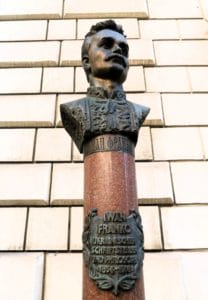
Monument to Ivan Franko in Vienna. Sculptor Lyubomyr Yaremchuk, 1999
Related monuments
***
Of course, Franko’s “romance” with Vienna could have turned out differently if, let’s say, his scientific, political or literary career had unfolded in the Austrian capital. But the main thing is that it has always remained itself: over the Danube, over the Vistula, over the Poltava, and over the Cheremosh. . . Vienna may have lost Franko as a parliamentarian, professor or minister but for his people the writer became an entire university, an academy of sciences, and a school of political thinking.
Vienna is a city where you can still walk with Frank – his paths, which for the most part do not run outside the city center (Innere Stadt), so it is quite possible to measure them with your own feet. Just like the writer himself measured the capital’s brook with his feet. After all, Franco walked, not drove a fiacre!
And instead of scrolling through the social media feed, better take a look into one of the old coffee shops – for coffee and newspaper! It will be very Ivano Franko and Viennese style.
Author: Bohdan Tykholoz
Collaboration:
This material was created in cooperation with Franko House in Lviv.
Official Website | Facebook Page
Franko House is not just a museum—it’s everything about Ivan Franko from A to Z. It’s also:
- House of Muses, where multifaceted artistic life thrives;
- House of Science, a hub for Franko studies and museum research;
- House of Dialogue, hosting honest discussions and fostering mutual understanding;
- House of Family, offering a warm and cozy atmosphere.
Moreover, it is a true Place of Power.
Note:
This publication features images from the collection of Franko House (Lviv National Literary and Memorial Museum of Ivan Franko).
Source: Franko House Digital Collection
References:
- Günther Wytrzens. Iwan Franko als Student und Doktor der Wiener Universität. In: Wiener slavistisches Jahrbuch, Bd. VIII, Graz-Köln, 1960, pp. 228-241.
- Stefan Simonek. Ivan Franko in der Wiener “Arbeiter-Zeitung” (1889-1901) (Addenda et corrigenda). In: Wiener Slavistisches Jahrbuch 52 (2006), pp. 201-212.
- Ярослав Грицак. Франко у Відні. In: Подорож до Європи. Галичина, Буковина і Відень на центральноевропейській культурній шахівниці, Львів: ВНТЛ-Класика, 2005, pp. 9–29.
- Alois Woldan & Olaf Terpitz [Hg.]: Ivan Franko und die jüdische Frage in Galizien. Interkulturelle Begegnungen und Dynamiken im Schaffen des ukrainischen Schriftstellers. Göttingen: V&R unipress, 2016.
- Богдан Тихолоз. Український Мойсей Австрійської Галичини. In: Проект «Україна». Австрійська Галичина, Харків: Фоліо, 2016, pp. 228-254.
- Larissa Cybenko. Ivan Franko und die Wiener Moderne. In: Wynfried Kriegleder et al. [Hg.]: Kulturelle Zirkulation im Habsburgerreich. Der Kommunikationsraum Wien, Wien: Praesens Verlag, 2019, pp. 263-287.
- Богдан Тихолоз. Франко як текст: Досліди і досвіди, Львів: Простір М, 2021, 992 pp.
- Богдан Тихолоз. Доктор Ф. Маленька книжка про великого Франка. Львів: Простір М, 2021, 176 pp.
- Ярослав Лопушанський. Віденська Франкіана: студії, докторат, академічне середовище Івана Франка у Віденському університеті (1892-1893), Дрогобич: Посвіт, 2024, 204 pp.
Guides:
- Frankotravel+: Guide / Idea, alignment, introductory word: B. Tykholoz; texts: I. Medvid (content editor, rewriter) and others; design: V. Martyniuk; Lviv National Literary and Memorial Museum of Ivan Franko; with the support of the Ukrainian Cultural Foundation. Lviv: Lviv National Literary and Memorial Museum of Ivan Franko, 2021. 224 p. (Series «Franko House Library». Issue 12).
Books and Documentaries:
Books:
- Franko from A to Z / Texts: Bohdan Tykholoz, Natalia Tykholoz; Graphic design: Romana Romanyshyn, Andriy Lesiv. Lviv — Budapest — Vienna — Ljubljana — Zagreb, 2019. 64 p. (Серія «Бібліотека Дому Франка». Вип. 5).
- Stepan Protsiuk. Ruki i Slozy. A Novel About Ivan Franko. Ivano-Frankivsk: Discursus, 2024. 384 pages.
Documentaries & Interviews:
- Great Ukrainians – Ivan Franko (2008)
- Host: Sviatoslav Vakarchuk
- Watch on YouTube
- Franko Labyrinth Exhibit in Vienna (2019)
- Ivan Franko: The Most Scandalous Facts from His Life (Historical Truth with Vakhtang Kipiani, 2020)
- The Lesser-Known Ivan Franko | Interview with Bohdan Tykholoz (BEZ BROMU, 2020)
- How Franko Changed Ukraine: Gogol the Conformist, Shevchenko Revived the Dead – Tykholoz (Roman Kravets’ Author Project, 2023)
- The Living Ivan Franko: Gossip and Truth. Biography, Wife, and Lovers. Women, Marriage Crisis, Feminism (Look, That Is the Artist!, 2024)

